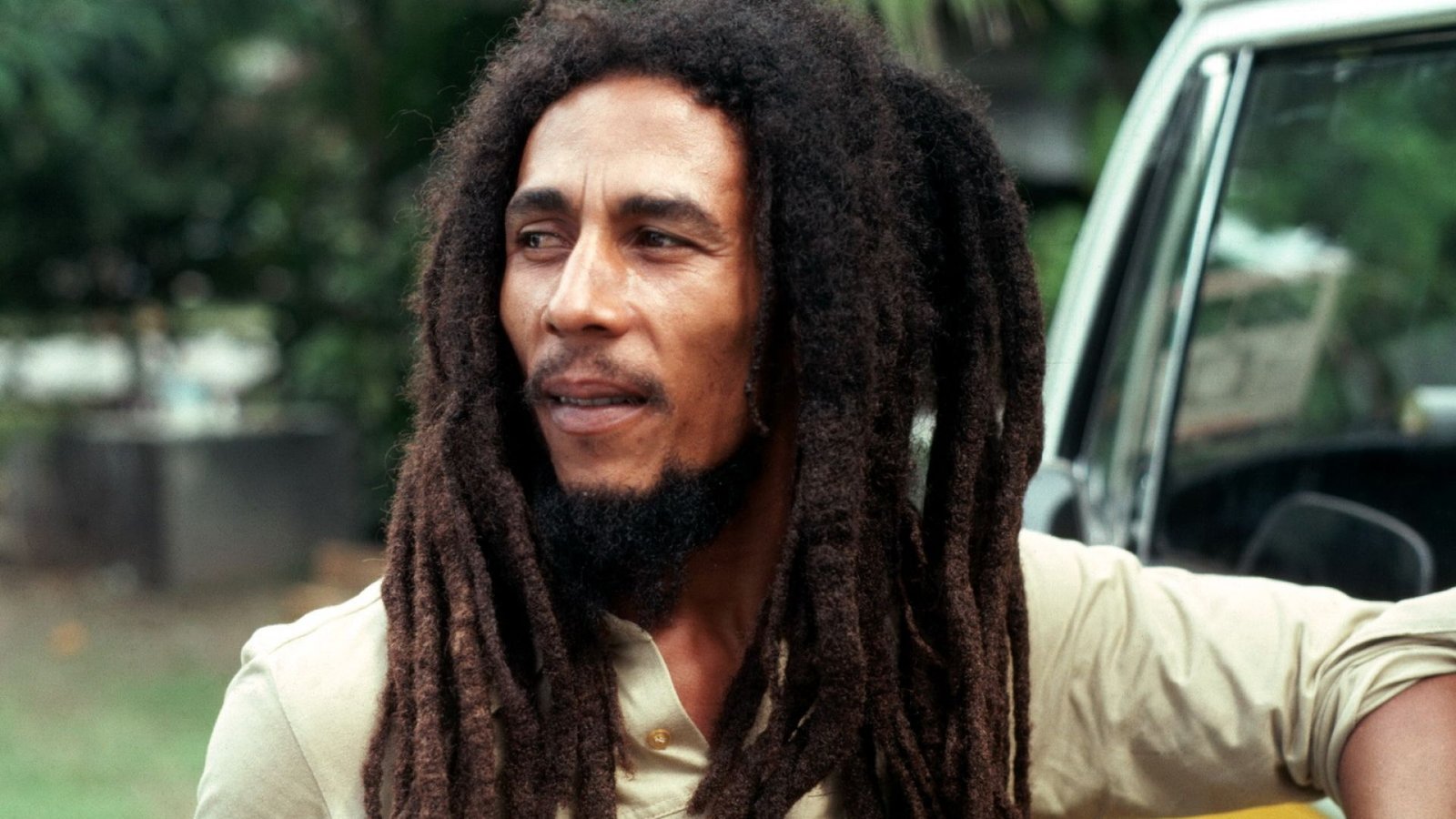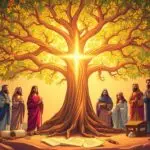Bob Marley’s spiritual journey and religious beliefs have long been a topic of interest. While he is often associated with the Rastafari faith, the question remains: Was Bob Marley a Christian? Let’s delve into his beliefs to find out.
Table of Contents
Bob Marley’s Early Life and Exposure to Christianity
In his early life, Bob Marley was exposed to Christianity through his mother, Cedella Marley. She was a devout Christian and raised Bob in the faith. As a child, he attended church and Sunday school, where he learned about the principles and teachings of Christianity.
This early exposure to Christianity had a significant impact on Bob Marley’s upbringing and worldview. Through his mother’s influence, he gained a strong foundation in Christian values such as love, compassion, and the importance of faith.
The early teachings of Christianity provided a moral compass for Bob Marley. He learned about the life of Jesus Christ and the values of forgiveness and redemption. These teachings resonated deeply with him and served as a guiding light throughout his life.
As Bob Marley grew older, his exposure to Christianity expanded beyond his home and church. He encountered the religion through various forms of media, including gospel music, hymns, and the Bible itself.

Bob Marley’s early exposure to Christianity laid the groundwork for his spiritual journey and influenced his later exploration of different religious beliefs. It shaped his understanding of faith, morality, and the power of music to spread messages of love, unity, and social change.
Early Life and Musical Influences
In addition to his Christian upbringing, Bob Marley was also influenced by the music of his Jamaican roots. The rhythms and melodies of reggae, ska, and rocksteady intertwined with his early exposure to Christianity, forming the unique sound that would later define his music.
Through his music, Bob Marley expressed the spiritual and social lessons he had learned from his early exposure to Christianity and the culture of Jamaica. His songs often conveyed messages of love, hope, and spiritual liberation.
Influences on Bob Marley’s Early Life
| Religious Influence | Musical Influence |
|---|---|
| Christianity | Reggae, Ska, Rocksteady |
| Love, Compassion, and Forgiveness | Jamaican Culture and Rhythms |
| Principles and Teachings of Christianity | Messages of Love, Hope, and Spiritual Liberation |
This table highlights the key influences that shaped Bob Marley’s early life. It illustrates the intertwining of his exposure to Christianity with the vibrant music of Jamaica, forming the foundation of his unique artistic expression.
Bob Marley’s Conversion to Rastafari
As he grew older, Bob Marley underwent a spiritual transformation and became deeply interested in Rastafari beliefs. He embraced the Rastafari movement, which intertwined elements of Christianity and African spirituality. This shift in his beliefs had a profound impact on his music and lifestyle.
Bob Marley’s journey towards Rastafari began during his teenage years when he moved to Kingston, Jamaica. It was there that he was exposed to Rastafarian teachings and practices, which resonated deeply with him. The principles of Rastafari, such as the divinity of Emperor Haile Selassie I and the importance of African heritage, struck a chord with Bob Marley and became integral to his identity.
“Rastafari is the best thing for the world right now… God lives within my heart and the Rastaman has awakened the god within me.” – Bob Marley
This spiritual conversion had a significant influence on Bob Marley’s music. He used his songs as a platform to spread the message of Rastafari and advocate for social justice. Through his lyrics, he expressed the belief in unity, love, and the pursuit of a better world. Bob Marley’s conversion to Rastafari not only shaped his music but also transformed his lifestyle, leading him to adopt a more natural and holistic approach to life.
It is important to note that even though Bob Marley embraced Rastafari, he did not completely abandon his Christian roots. He often blended elements of Christianity with Rastafarian beliefs in his music, creating a unique fusion of spirituality. This fusion allowed Bob Marley to appeal to a wide audience, transcending religious boundaries and spreading his powerful message of peace and love.
The Impact of Bob Marley’s Conversion
The conversion to Rastafari brought about a profound evolution in Bob Marley’s life and work. He became a symbol of resistance and liberation, using his music to challenge societal norms and advocate for equality. Bob Marley’s influence extended far beyond the realm of music, inspiring generations of individuals to embrace their spirituality, stand up for their rights, and create positive change.
Rastafari Beliefs and Practices
Originating in Jamaica, Rastafari is both a religious and social movement that holds diverse beliefs and practices. Central to Rastafari is the belief in the divinity of Emperor Haile Selassie I of Ethiopia, whom followers consider to be the reincarnation of Jesus Christ. This spiritual conviction forms the foundation of Rastafarian theology and shapes their worldview.
Rastafarians also place great importance on African heritage, viewing Africa as their ancestral homeland. They seek to reconnect with their African roots, celebrating African culture, traditions, and history. This emphasis on African identity is seen in various aspects of Rastafari culture, including language, music, and fashion.
“We seek to establish a society in which every person will be able to develop his/her fullest potential and in which each person can live a decent and fulfilling life” – Leonard Howell, Rastafari pioneer
Furthermore, Rastafarians are strong advocates for social justice. They actively challenge systems of oppression and advocate for equality, freedom, and rights for all individuals, irrespective of their race or social background. Rastafari promotes communal living, emphasizing the importance of unity and cooperation within their communities.
One notable practice within Rastafari is the sacramental use of marijuana, which is considered a sacred herb. Rastafarians believe that it brings them closer to their spiritual self and enhances their connection with the divine. In Rastafari rituals and ceremonies, marijuana plays a significant role, serving as a symbol of spiritual enlightenment and liberation.
| Beliefs | Practices |
|---|---|
| Belief in Emperor Haile Selassie I as the reincarnation of Jesus Christ | Use of marijuana in religious ceremonies |
| Emphasis on African heritage and identity | Advocacy for social justice and equality |
| Rejecting systems of oppression | Communal living |
Haile Selassie I – The Divine Figure
Emperor Haile Selassie I is venerated as the messiah in Rastafarian theology. His imperial reign and teachings are considered essential to maintaining the faith’s central beliefs and practices. Selassie I has become a symbol of hope, liberation, and a rallying point for Rastafarians worldwide.
Bob Marley’s Lyrics and References to Christianity
Despite his conversion to Rastafari, Bob Marley’s music often contained references to Christianity. He would incorporate biblical themes and imagery into his lyrics, showcasing a blend of his Christian upbringing and newfound Rastafari beliefs. This fusion of religious influences added depth and complexity to his music.
Bob Marley’s lyrics were a reflection of his spiritual journey and the various influences that shaped his worldview. While his conversion to Rastafari marked a significant departure from his Christian roots, Marley’s music continued to resonate with audiences of all backgrounds, blending elements from both traditions.
“**One love**, one **heart**, let’s get together *and feel all right*.” – Bob Marley
In this iconic line from “One Love,” Marley’s use of religious language and imagery is evident. The lyrics express a message of unity and love, drawing on the Christian concept of a universal love for all humanity.
Another example of Marley’s incorporation of Christian themes can be found in the song “Redemption Song.” The lyrics allude to biblical references, emphasizing the power of redemption and liberation:
**”Emancipate** yourselves *from mental slavery*; **None but** ourselves **can free** our minds.” – Bob Marley
This powerful quote from “Redemption Song” highlights Marley’s belief in personal empowerment and draws upon the Christian notion of liberation from spiritual bondage.
Through his lyrics, Bob Marley bridged the gap between his Christian upbringing and his newfound Rastafari beliefs. He used the language and imagery of Christianity to convey messages of love, unity, and personal liberation, creating music that resonates with audiences across different religious and cultural backgrounds.
| Song | Album |
|---|---|
| “One Love” | Exodus |
| “Redemption Song” | Uprising |
Bob Marley’s Personal Relationship with Christianity
While Bob Marley embraced the principles of Rastafari, his personal relationship with Christianity remained significant throughout his life. Despite his conversion to Rastafari, some sources suggest that he maintained connections with the Christian faith. He reportedly attended Christian church services and found solace in the Ethiopian Orthodox Church, where he was baptized.
This fluidity in his spiritual journey highlights the complexity of Marley’s beliefs. It indicates that he drew inspiration from multiple faiths, finding meaning and guidance in Christianity alongside Rastafari’s teachings. This amalgamation of religious influences played a crucial role in shaping his worldview and artistic expression.
Bob Marley’s commitment to Rastafari did not invalidate his affinity for Christianity. Instead, it added depth to his spiritual journey, allowing him to embrace the principles of love, unity, and redemption from both religious perspectives.
This personal relationship with Christianity is reflected in Marley’s music, where he often incorporated biblical themes and imagery. His lyrics frequently allude to Christian teachings, showcasing the ongoing influence of his Christian upbringing. This fusion of religious influences made Marley’s music resonate with diverse audiences, transcending religious boundaries.
Ultimately, Bob Marley’s personal relationship with Christianity demonstrates the fluidity of spirituality and the importance of embracing multiple faiths. It highlights his ability to find common ground between Rastafari and Christianity, using both as vehicles for expressing his messages of love, social justice, and spiritual liberation.
The Legacy of Bob Marley’s Faith
Bob Marley’s faith, whether it was Christian or Rastafari, played a significant role in shaping his music and worldview. His messages of peace, love, and social justice continue to resonate with audiences worldwide. Regardless of the specific label, his spiritual beliefs had a profound impact on his life and artistic contributions.
The Influence of Bob Marley’s Faith on his Music
Bob Marley’s music was deeply influenced by his spiritual beliefs. Whether drawing from his Christian upbringing or his later embrace of Rastafari, his lyrics carried powerful messages of faith, hope, and liberation. Songs like “One Love” and “Redemption Song” conveyed his dedication to spreading unity, equality, and love through the medium of music.
Bob Marley’s Faith as a Social Force
Beyond his music, Bob Marley’s faith also fueled his activism and advocacy for social change. His commitment to justice and equality was intertwined with his belief in the power of faith to inspire positive transformation. His music became a vehicle for social consciousness, empowering countless individuals to stand up against oppression and fight for a better world.
“My music fights against the system that teaches to live and die.” – Bob Marley
The Enduring Impact of Bob Marley’s Faith
Bob Marley’s faith left a lasting legacy that extends far beyond the realm of music. His unwavering devotion to his principles continues to inspire generations and serves as a reminder of the power of faith in shaping individual lives and collective movements. Bob Marley’s influence transcends religious boundaries, touching the hearts and souls of people from all walks of life.
Bob Marley’s Music and its Message
| Song | Message |
|---|---|
| One Love | Unity and love for all humanity |
| Get Up, Stand Up | Advocacy for social justice |
| No Woman, No Cry | Resilience and hope in the face of adversity |
| Redemption Song | Freedom from mental slavery |
Bob Marley’s music not only entertained but also served as a powerful medium for spreading messages of love, unity, and social change. His faith played a crucial role in shaping his musical expression, leaving an indelible mark on the hearts and minds of listeners worldwide.
Final Thoughts on Bob Marley and Christianity
In our exploration of Bob Marley’s spiritual journey, it is clear that while he ultimately embraced Rastafari and its principles, his relationship with Christianity was more nuanced. His early exposure to the Christian faith through his mother and his continued references to Christianity in his music indicate a complex interplay between the two belief systems.
Bob Marley’s legacy, however, extends far beyond any specific religious label. His messages of unity, love, and social justice resonate with people from all walks of life, transcending religious boundaries. It is through his music and his advocacy for equality that Bob Marley continues to inspire and make a lasting impact on the world.
Whether one sees Bob Marley as a Christian or a Rastafarian, it is undeniable that his faith, whatever form it took, shaped his music and his unwavering commitment to spreading positive vibrations. As we reflect on Bob Marley’s life and his contributions, let’s focus on the unifying power of his messages and the timeless values he championed.
FAQ
Was Bob Marley a Christian?
While Bob Marley’s spiritual journey led him to embrace Rastafari, his early exposure to Christianity and continued references to it in his music suggest a complex relationship with the faith.
What was Bob Marley’s early life like and his exposure to Christianity?
Bob Marley was raised in the Christian faith by his mother, Cedella Marley. He attended church and Sunday school as a child, where he learned about the principles and teachings of Christianity.
When did Bob Marley convert to Rastafari?
Bob Marley underwent a spiritual transformation and embraced Rastafari beliefs as he grew older.
What are the beliefs and practices of Rastafari?
Rastafari is a religious and social movement that emphasizes the divinity of Emperor Haile Selassie I, African heritage, social justice, and the use of natural substances like marijuana in religious rituals.
Did Bob Marley incorporate Christianity into his music?
Yes, Bob Marley often included biblical themes and imagery in his lyrics, showcasing a blend of his Christian upbringing and newfound Rastafari beliefs.
Did Bob Marley maintain a personal connection to Christianity?
Some sources suggest that Bob Marley attended Christian church services and was even baptized in the Ethiopian Orthodox Church, indicating a continued personal connection to Christianity.
What is the legacy of Bob Marley’s faith?
Bob Marley’s spiritual beliefs, whether Christian or Rastafari, played a significant role in shaping his music and worldview. His messages of peace, love, and social justice continue to resonate with audiences worldwide.
What are the final thoughts on Bob Marley and Christianity?
Ultimately, Bob Marley’s legacy is rooted in his messages of unity and love, transcending any specific religious label.

Rockin’ the faith, one verse at a time!
Growing up, the Bible’s stories deeply impacted me. Now, with over 15 years of preaching experience, I blend timeless teachings with modern technology, making them relevant for today’s world.
Bible Hub Verse is my platform to share historical insights and thought-provoking articles, exploring both familiar and uncommon Christian topics. My passion is building a welcoming online space for everyone to learn, grow in their faith, and discover the Bible’s enduring message.
Join the journey!
God bless you.









